Top 10 Inventors Who Regretted Their Inventions
Inventors across the globe have all impacted the world in some way with their many inventions. Some of them however, regret ever making their inventions or at least wish their creation was used differently. J. Robert Oppenheimer was an American theoretical physicist who was professor of physics at the University of California, Berkeley. Oppenheimer was the wartime head of the Los Alamos Laboratory and is among those who are credited with being the "father of the atomic bomb" for their role in the Manhattan... read more
J. Robert Oppenheimer was an American theoretical physicist who was professor of physics at the University of California, Berkeley. Oppenheimer was the wartime head of the Los Alamos Laboratory and is among those who are credited with being the "father of the atomic bomb" for their role in the Manhattan... read more Many people make the mistake of attributing the creation of the atomic bomb to Albert Einstein, but Einstein never worked on developing the deadly weapon. Instead it was Oppenheimer who directed work on the atomic bomb during World War II. He and many of the project staff were very upset about the bombing of Nagasaki, as they did not feel the second bomb was necessary from a military point of view. Oppenheimer later stated he felt like he had blood on his hands and began working with the U.S. Atomic Energy Commission to control the use of nuclear weapons.
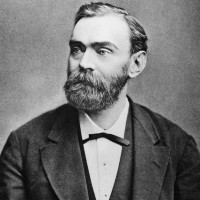 Alfred Bernhard Nobel was a Swedish chemist, engineer, inventor, businessman, and philanthropist. He held 355 different patents, dynamite being the most famous. He owned Bofors, which he redirected from its previous role as primarily an iron and steel producer to a major manufacturer of cannon and other... read more
Alfred Bernhard Nobel was a Swedish chemist, engineer, inventor, businessman, and philanthropist. He held 355 different patents, dynamite being the most famous. He owned Bofors, which he redirected from its previous role as primarily an iron and steel producer to a major manufacturer of cannon and other... read more Alfred Nobel might be more famous for starting the Nobel Peace Prize, but that was because he wanted to redeem himself after he created the dynamite in the 1860s. He created the dynamite to help his family's mining business. Of course, the army decided that if it can be used to obliterate rocks, it's good enough to obliterate your enemies, which is exactly how the dynamite was eventually used. In 1888 his brother Ludwig died, but the papers made a mistake and thought it was Alfred who had died. The obituary said that "The merchant of death is dead," and claimed that Nobel "became rich by finding ways to kill more people faster than ever before." Nobel was understandably shooked by that felt remorse for inventing dynamite after that.

Mikhail Kalashnikov invented the AK-47 in 1947. It is the most widely used assault rifle in the world and with good reason as it is cheap and easy to produce as well as being a strudy and lightweight weapon. Before his death in 2014, Kalashnikov wrote ceveral letters to the Russian Orthodox Church which later became public. In one of them he wrote: "I keep having the same unsolved question: if my rifle claimed people's lives, then can it be that I... a Christian and an Orthodox believer, was to blame for their deaths?"
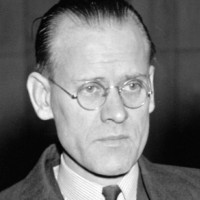
When Philo Farnsworth created the television, he wanted it to be used to learn things, but he died feeling people we're instead wasting their lives being lazy and watching things that don't make them grow intellectually. He even forbid his son to watch television telling him: "There's nothing worthwhile on it, and we're not going to watch it in this household, and I don't want it in your intellectual diet."
Wow, he must of really hated his creation if he didn't want his son watching TV.
Imagine a world without television...

Ethan Zuckerman has apologized for his creation a few years ago, saying he only had good intentions. In the late 90s, Zuckerman worked for Tripod.com, a website that marketed content and services for College graduates. At some point the company changed and wanted to find ways to make more money. They tried a few things and eventually found that advertising was their best source of revenue. In his apology, he said: "It was a way to associate an ad with a user's page without putting it directly on the page, which advertisers worried would imply an association between their brand and the page's content. I wrote the code to launch the window and run an ad in it. I'm sorry. Our intentions were good."
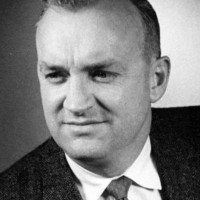
Robert Propst came up with the idea of the office cubicle in the 1960s and it was intended to give employees more freedom and privacy. Here is the part where it all went wrong: companies saw Propst's invention as a way to save money. By making them a little smaller, they could fit a few more people into the same space. In interviews he said: "The cubiclizing of people in modern corporations is monolithic insanity" and "The dark side of this is that not all organizations are intelligent and progressive. Lots are run by crass people who can take the same kind of equipment and create hellholes."
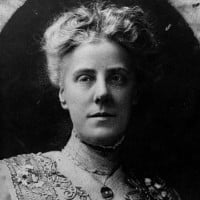
Anna Jarvis came up with Mother's Day because she loved her mother and felt that mothers weren't recognized and appreciated enough. The first Mother's Day was celebrated in 1908, at her Church. She chose white carnations as a symbol of Mother's Day because it was her mother's favorite flower. Her idea caught on and in 1914, the second Sunday of May was legislated to be Mother's Day. Like always, some people saw this as a way to make money, so after around 4 years, card companies and chocolatiers got involved, not to mention that the price for white carnation flowers went up. Anna Jarvis hated that the nice day she created became a day for profit and she regretted her creation all her life.

Pepper spray became a weapon in the 1980s when Kamran Loghman worked for the FBI. It was intended to be used as a non-lethal way to pacify someone at range who is threatening a police officer or other citizen. After an incident at the University of California in 2011, Loghman wasn't pleased with how his creation was used by police officers on "docile protesters". He said on the New York Times: "I have never seen such an inappropriate and improper use of chemical agents".
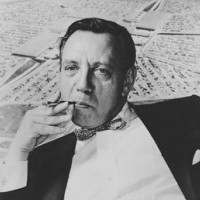
The first mall in the U.S. known as Southdale Center Mall was built in 1956, in Edina, Minnesota. Back when cities were smaller and more concentrated, everyone lived downtown, so everyone was close to all the shops. But as suburbs developed, it became harder and harder for people living outside the city to buy the things they needed. Victor Gruen's solution was the shopping mall, an area where people could easily get all the things they needed, which would also have green spaces, art and overall feel more opened. The idea caught on quickly, but, like always, some people got their dirty hands on the concept and removed everything that made the mall look nice like the art, the plants, etc in favor of, you guessed it, more stores, all in a single enclosed building. In 1978, Victor Gruen said: "I would like to take this opportunity to disclaim paternity once and for all. I refuse to pay alimony to those bastard developments. They destroyed our cities."

Honestly, with Nintendo's strict copyright and just wanting to be left alone, I can't blame Mr. Nguyen.

Guess who doesn't have a Keurig coffee make in his home? That's right, the creator of the Keurig K-Cups himself! Sylvan said: "I feel bad sometimes that I ever did it" and that is because these cups, not only are they expensive, they aren't recyclable or biodegradable, so there are literally tons filling up landfills. He said a few years ago: "It's like a cigarette for coffee, a singleserve delivery mechanism for an addictive substance."
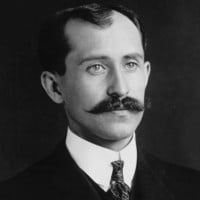
Orville and Wilbur Wright are famous for inventing and being the first to fly in a powered airplane. Unlike his brother, Orville Wright lived to see their invention used in both Word War I and World War II. When first giving airplanes to the US army, the brothers imagined that they'd be used for observation. After WW2. Orville Wright said that he and his brother had "dared to hope we had invented something that would bring lasting peace to the earth. But we were wrong."
 Sir Timothy John Berners-Lee, also known as TimBL, is an English computer scientist, best known as the inventor of the World Wide Web.
Sir Timothy John Berners-Lee, also known as TimBL, is an English computer scientist, best known as the inventor of the World Wide Web. Sir Tim Berners-Lee is known as the creator of the World Wide Web. There is however a part of his work he regrets and that is the two slashes (//) next to the http address of every web page. They were put in there because of a programming convention common at the time, but Berners-Lee admits that they’re completely unnecessary saying: "Really, if you think about it, it doesn't need the //. I could have designed it not to have the //".
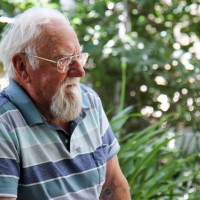
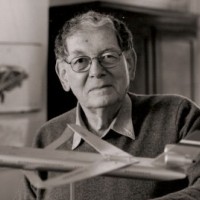

 Dame Agatha Mary Clarissa Christie, Lady Mallowan, was an English crime novelist, short story writer and playwright. She is the best-selling novelist ever. She also made the longest play ever. She is remembered for making multiple mystery books including; And Then There Were None, Murder on the Orient... read more
Dame Agatha Mary Clarissa Christie, Lady Mallowan, was an English crime novelist, short story writer and playwright. She is the best-selling novelist ever. She also made the longest play ever. She is remembered for making multiple mystery books including; And Then There Were None, Murder on the Orient... read more Poirot first appeared in The Mysterious Affair at Styles (published in 1920) and exited in Curtain (published in 1975). By 1930, Agatha Christie found Poirot "insufferable", and by 1960 she felt that he was a "detestable, bombastic, tiresome, ego-centric little creep". Yet the public loved him and Christie refused to kill him off, claiming that it was her duty to produce what the public liked. Essentially, Poirot being her most beloved creation and her best source of revenue, she had no choice but to keep him around.